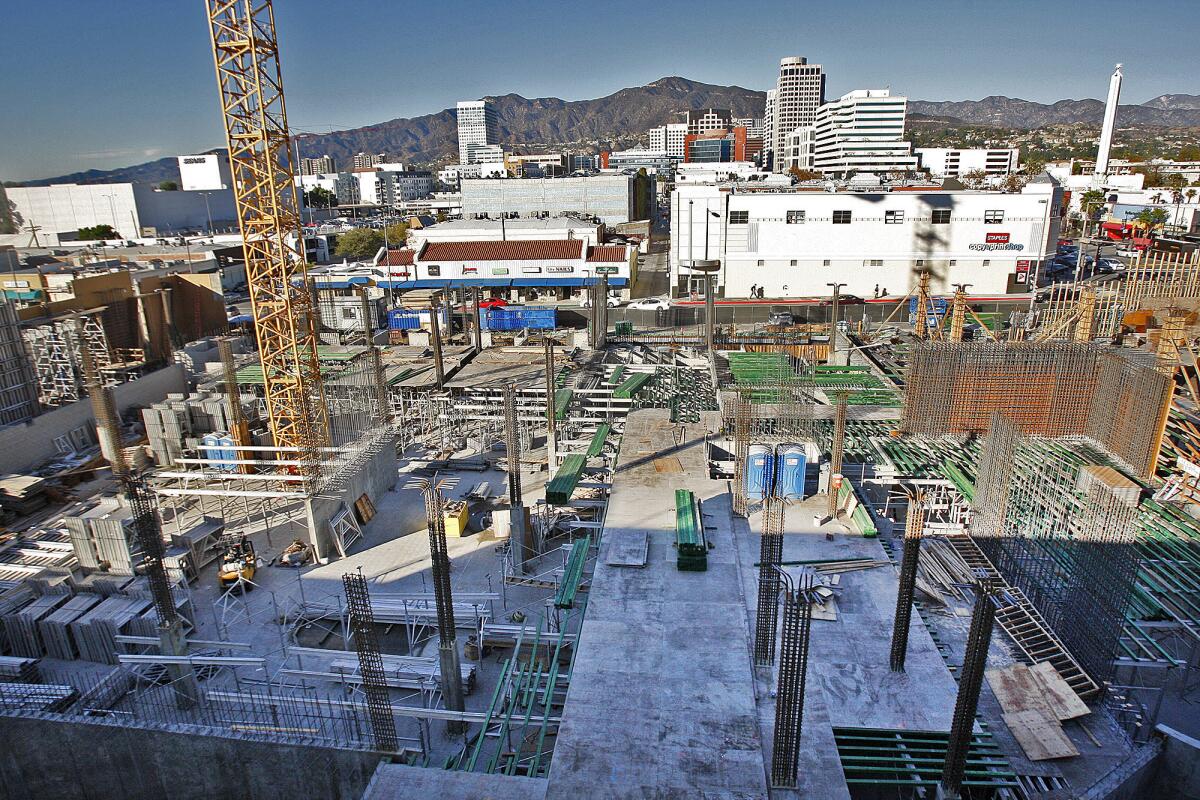Op-Ed: Glendale’s growth plans have mobility in mind

In response to the Glendale News-Press article “Massive building boom troubles Caltrans” published on Friday, Jan. 10, 2014: The city of Glendale has executed a policy of smart and sustainable development in and around our downtown core. Not only does this make sense economically and environmentally (placing uses within close proximity to one another and reducing folks’ reliance on automobiles), but it also allows us to better leverage our strategic infrastructure investments. Further, the city has diligently and proactively complied with state mandates to accommodate growth in jobs and housing while investing resources to minimize local and regional impacts on the transportation infrastructure. Over the past two decades, the city has dedicated approximately $100 million to transportation and mobility improvement projects. The following are just a few highlights:
Improving the efficiency of city on-ramps and off-ramps — Since 1990, the Glendale has been improving signals, realigning and widening ramps, and modifying travel lanes on ramps throughout the city. By 2019, the city will have improved in some fashion every freeway ramp leading to and from Glendale.
Funding large-scale street improvement projects — Glendale has placed an emphasis on improving major streets that serve as alternatives to the regional freeway network, and properly accommodating new development. Some examples include:
$34 million to construct the Fairmont Avenue Bridge from the 134 Freeway directly into the expanding Disney and DreamWorks Campuses, thus alleviating the impact on the San Fernando Rail Corridor;
$14.5 million dedicated to the 5 Freeway and Western Avenue interchange, including widening Flower Street and improving the northbound on-ramps and off-ramps at Western Avenue;
- $9.6 million for street improvements to Colorado Street and Central Avenue — road-widening, improved lighting, new bus stop shelters, upgraded signals, and a bike lane on Central Avenue were installed as a result of the Downtown Specific Plan.
Providing local transit with connections to the regional network — The city has made a commitment to provide quality local transit through the Glendale Beeline, serving 2.2 million riders annually. Our grant-funded Maintenance Facility serves the nine-route, 34 bus fleet, which consists entirely of 40-foot low-floor CNG buses, a first for any public transit operator in Los Angeles County.
Minimizing future impacts through sound policies — As noted above, the city has been proactive in planning where future growth occurs in Glendale. New housing development is consistent with our state-certified housing element, and in conjunction with state and regional agencies. Glendale’s general plan strictly limits growth in established neighborhoods and hillsides, directing new growth toward downtown Glendale where impacts to growth can be accommodated through transit, bicycling, and pedestrian improvements. The city’s guiding policy documents are widely lauded as best practices by the Southern California Assn. of Governments for excellence in long-range planning.
Thorough environmental review — Glendale is committed to responding to all correspondence received from program-level and project-level EIRs, including concerns raised by Caltrans. There is no corner on all the good ideas and the city readily and regularly debates and evaluates the merits of its plans and thinking.
Additional planning for the future — Glendale continues to be proactive in planning for the future, receiving $475,000 in grant funds from Metro to pursue a comprehensive community plan and environmental impact report to evaluate all potential land use and zoning impacts south of the 134 Freeway.
The city of Glendale is a leader among cities and our downtown investment program represents a clear demonstration of the power of careful planning and collaboration with the private sector, the demand for quality design and innovation, and the discipline to fund and construct needed public infrastructure.
--
SCOTT OCHOA is the Glendale city manager. He can be reached at sochoa@glendaleca.gov.